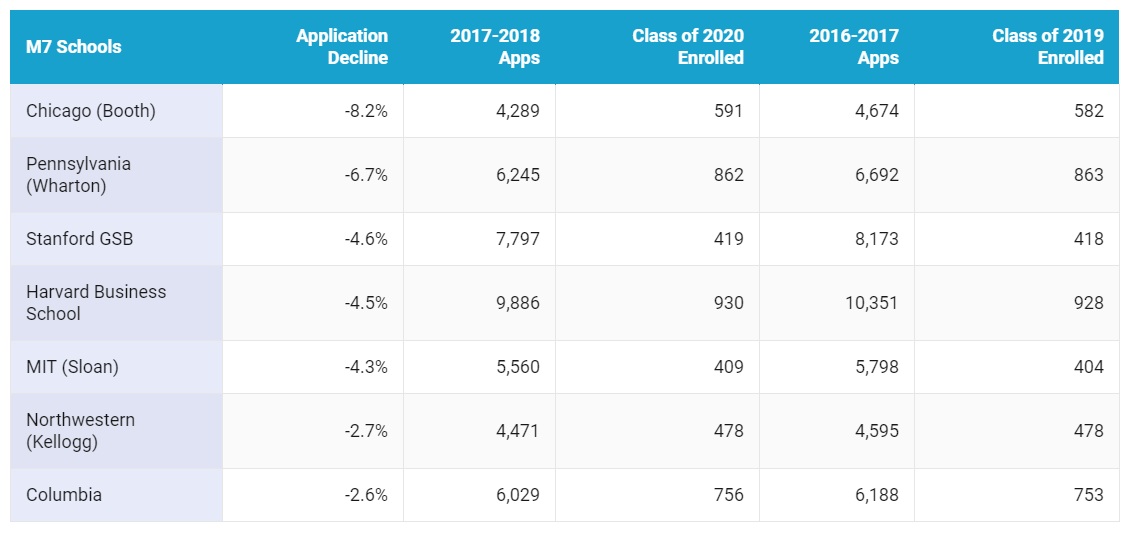Decline in MBA Applications Continues for 2018
A new study by Kaplan Test Prep which surveyed admissions officers at more than 150 business schools across the United States noted that applications at the nation’s top business significantly declined in 2018. 31 percent of admissions officers cited concerns from international students about the political climate and immigration policy. 30 percent believe the strong job market is enticing prospective students to stay in the workforce. 17 percent blame the rising cost of an MBA education and 13 percent cite a decline in the perceived value of an MBA degree.
According to Kaplan, “nearly three quarters (74 percent) of the business schools polled are concerned that the current domestic political climate will have a negative impact on international student enrollment in the years to come”.
Even top schools like Harvard and Booth saw shocking declines in applications . The top seven business schools, known as the M7 schools, suffered declines ranging from 2.6% at Columbia to 8.2% at University of Chicago’s Booth.
Applications decline among M7 schools
Source: Poets&Quants analysis Get the data Created with Datawrapper
While concerns over immigration and a strong workforce are cited as the main reasons for the drop in MBA application. In other cases, however, newsmaking events are believed to have impacted interest from potential students. Last August, Hurricane Harvey shut down the Rice University campus for weeks and prevented admissions reps from attending recruiting events. After, violent white supremacist protests in Charlottesville, Va., last August in 2017, first-round applications to University of Virginia’s Darden School of Business fell by 27 percent.
Still, many believe the current downturn in admissions is part of a steady, economy-based cycle. Jeff Thomas, executive director of admissions programs at Kaplan Test Prep states that “trends in MBA applications are almost always cyclical. When the job market is soft, you see an increase in applicants, as prospective students see the value in becoming more marketable and waiting out a weak economy. When the job market is robust, as it has been for the past two years, applications tend to be down. But even if the economy does take a downturn, an American political climate that discourages international students from coming may erode any normal application increase. We’ll continue to track this trend.”











